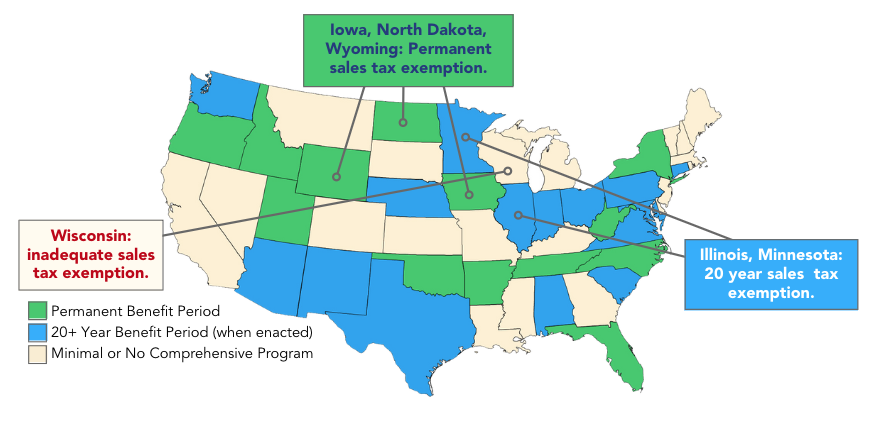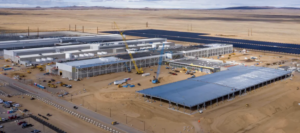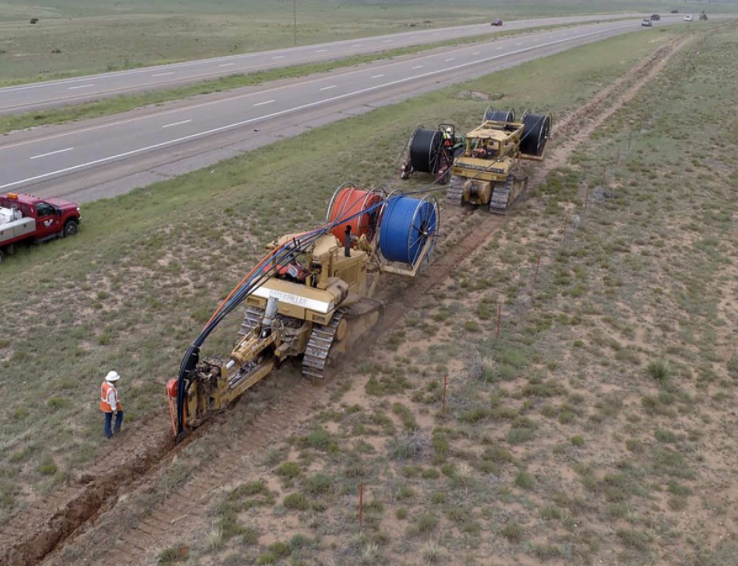How could enterprise data centers help Wisconsin?
America’s networks and data centers enable all that we do online today. Enterprise data centers create tech jobs, boost the local economy, and support a better online community everywhere.

In fact, a 2022 Mangum Economics study demonstrates the economic benefits of constructing new data centers in Wisconsin, both directly and in ripple effects that generate benefits statewide.
If just one new hyperscale data center were to locate in Wisconsin, the state could see $270 million in new economic output during construction, and $87 million annually.
And the indirect economic activity associated with a new data center in Wisconsin could lead to $1.6 million in tax revenue collected by the state of Wisconsin and $1.4 million collected by local governments each year.
“Between 2001 and 2020 the average annual pay for data center employees in the United States increased almost twice as fast as for the average private-sector employee in Wisconsin and in the nation.”
Mangum Economics Study, 2022 (two-page summary)
Research has shown that data centers share the pool for high-tech labor with industries such as architecture, engineering, computer system design, software, telecommunications, scientific research & development, and technical consulting. The existence of a vibrant data center market helps to attract talent that supports all of these vital industries.

But Wisconsin needs a sales tax exemption to attract hyperscale data centers
For nearly a decade, no enterprise data center has located in states that impose sales tax burdens on data center equipment—Wisconsin is one of them.
Wisconsin currently has a limited sales tax refund program for data center equipment, but this program has not been competitive with the 30+ states that simply exempt data center equipment from sales and use taxes. Wisconsin should consider sales and use tax exemption legislation, like AB 302 and SB 308, to compete for enterprise data centers.
A data center sales and use tax exemption would help Wisconsin compete for new hyperscale investments and jobs
Wisconsin can bolster its competitive business climate by joining 30+ other states that provide qualified data centers long-term certainty through a sales tax exemption on data center equipment, and position the state to attract new hyperscale data center investments.
An enterprise data center is typically a $750 million dollar investment, larger than smaller co-location data centers. This kind of investment can drive:
- 1,200 construction jobs
- $500 million to the local economy during construction
Once built, each site generates
- 100 direct employees
- support for 300 additional jobs in security and maintenance
- almost $200 million dollars in local economic activity once operation begins
Learn more about the potential impact of enterprise data centers on jobs and communities nationwide through a 2017 report by the US Chamber of Commerce here.

Watch a video of Meta’s data center in Henrico, Virginia here.
An enterprise data center could creates annual revenue for your state and local governments from:
- Income taxes paid by employees and contractors
- Corporate income taxes from data center operators & contractors
- Sales taxes on non-exempt equipment and supplies
- Lodging taxes for visits by contractors and workers
- Sales taxes on business services
- Local real estate & personal property taxes
Read more about that about the potential tax revenue new enterprise data centers could bring through a 2022 report by Mangum Economics here.
- Facebook and Google are committed to using renewable energy in their enterprise data centers
- Sourcing 24/7 carbon-free energy for all data center operations
- Producing over seven billion kilowatt-hours of electricity from
- Wind farms
- Solar photovoltaic energy production
- Waste conversion into electricity

Enterprise data centers connect to high-capacity networks by building network infrastructure that can be used by schools, colleges, health institutions, and more.
- In North Carolina and New Mexico, like in other states, Meta brought high-speed internet to five counties in a new internet fiber route
- Microsoft’s Airband Initiative brings high-speed internet to rural America, partnering with multiple broadband service companies for the effort

